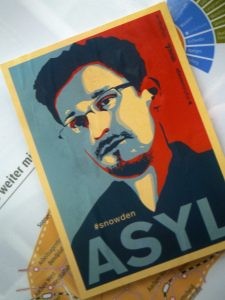--Originally published at That Class Blog
Let’s talk first about the talk given by Sam Richards, the one about empathy.
I liked his example, putting the US in a position like the one they make other countries be when a society or a regime gets in between a resource and the US. It’s not right, and it’s even worse when the US citizens know about how are the foreign people treated by their army, by their governments that will do anything to their citizens if the US helps them to stay in power… And won’t do anything. That’s wrong. People should at least acknowledge that what they are doing is wrong. That people are getting killed, innocent people, to maintain the American economic lifestyle.
We often forget to ask who is really paying for our comfortable way of life. And if we did that more often, and put ourselves in the shoes of the people who are paying, with their lives, not just with money for the bills. They are suffering! They are dying! Their houses are bombed every day! From their government, from other nations, from the terrorists, from whoever. And the innocents, they don’t support the terrorists, they don’t support the regime, and still, they are paying the hard bills for us.
At the end, when using empathy, we allow ourselves to see the big picture and understand the other’s perspective. In the experiment Sam Richard does, we understand how a regular person, a regular Muslim, with a regular family, who live on a regular street in Syria, Iran, Irak, Afghanistan or wherever people are being subjugated to the other’s will sees the conflict. And Sam doesn’t ask you to change your perspective, but to understand theirs.
And as I have experienced, if you understand the other party perspective, it’s more probable to solve a conflict.
And if using empathy could help us understand wars, it can help us to solve any conflict in our regular life. Understanding your boss, who is asking you to perform at 110%. Understanding your employees who can’t really give their whole life to the work. Understanding your parents when they are angry at you. Understanding your sons when going to difficult stages of change in their lives.
It’s easier… And more healthy even.
And now into the David Marquet’s conference, about leaders.
First, I like to have control too. And I know that to have control is to give control.
Second, I know that my recurrent problem is that the people who I give the power to do things, they usually do nothing with it. I guess there are some people who need to be pressured as if they were hard-labor workers, like the ones in the photo of the factory.
And I know that it isn’t a really good practice. Because at the end, who really knows how to deal with the stuff, is the one who interacts with it as a regular job, not the one person who wants a change, or an execution of the stuff. And this doesn’t mean to give all the power of control to the subordinates because the organization and performance are at risk (Like the example he uses of giving leaves to the officers).
I gues I’m giving to much control to others… But still… I really do think there are people who ar ejust lazy.




